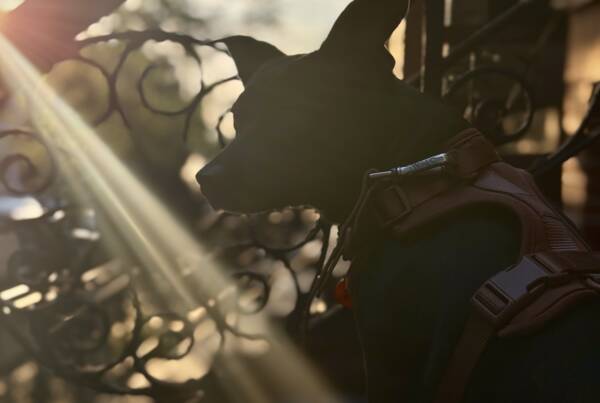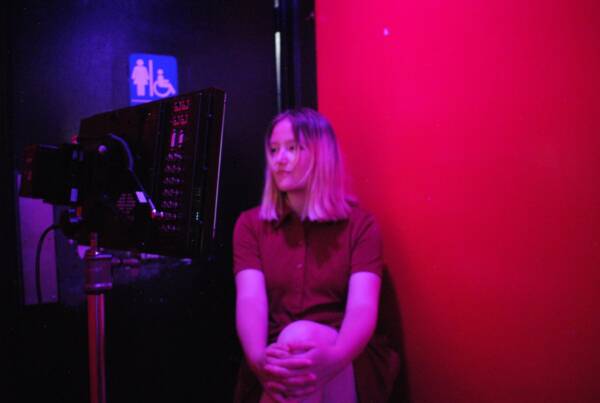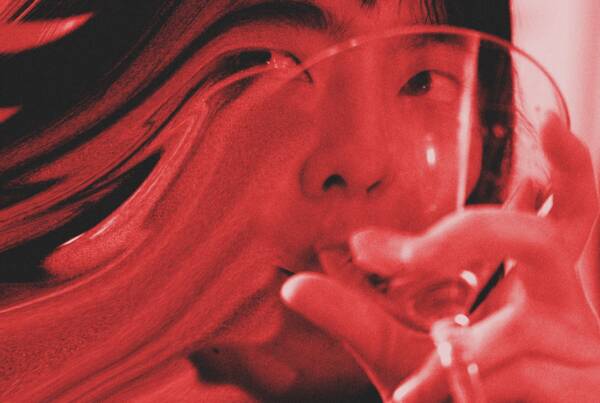Writing by Erandhi Mendis // Photography by Mitch Lowe
 There is a video in the depths of the internet of Missy Higgins crying as Taylor Swift emerges on stage during the Melbourne leg of the Eras Tour. For many Australian women, as Higgins took the stage for the first night of The Second Act Tour at the Palais Theatre – the feeling is mutual.
There is a video in the depths of the internet of Missy Higgins crying as Taylor Swift emerges on stage during the Melbourne leg of the Eras Tour. For many Australian women, as Higgins took the stage for the first night of The Second Act Tour at the Palais Theatre – the feeling is mutual.
It is impossible to quantify the impact Higgins has had over the past 20 years on the Australian music scene. In particular, her first album, The Sound Of White remains one of the great Australian records – certified Platinum, ten times over. To this day, debut single Scar sits firmly in the zeitgeist of ‘contenders for unofficial Australian anthems,’ and hearing the crowd flinch in excitement at the first chords of a piano ballad many of us grew up with is something to behold.
The 20th anniversary tour feels like a coming home, not least of all because this is where a lot of Higgins’ career took off. “My hometown, my favourite theatre,” she says to herself at the piano, taking in the crowd.
The show is broken up into two parts. Her new album, aptly termed The Second Act is due to be released on September 6th, exactly 20 years since The Sound Of White. Described as a confessional sequel to her debut, Higgins opens the evening by playing a ‘first act’ of deep cuts and a sprinkling of brand new material – entirely acoustic.
Higgins’ personal life, while recently tumultuous, has carved a new niche of honesty within her craft. Themes of parenting, divorce and exploring womanhood after becoming a mother are somehow not far removed from the teenage angst she first graced our radios with. It’s most obvious when she floats between playing music she wrote aged 16 to songs she has written in the past few months.
“These songs are almost embarrassing to play,” she laughs of some of her newer work. “I’m admitting so many of my insecurities – but I suppose I can’t see any of you anyway.”
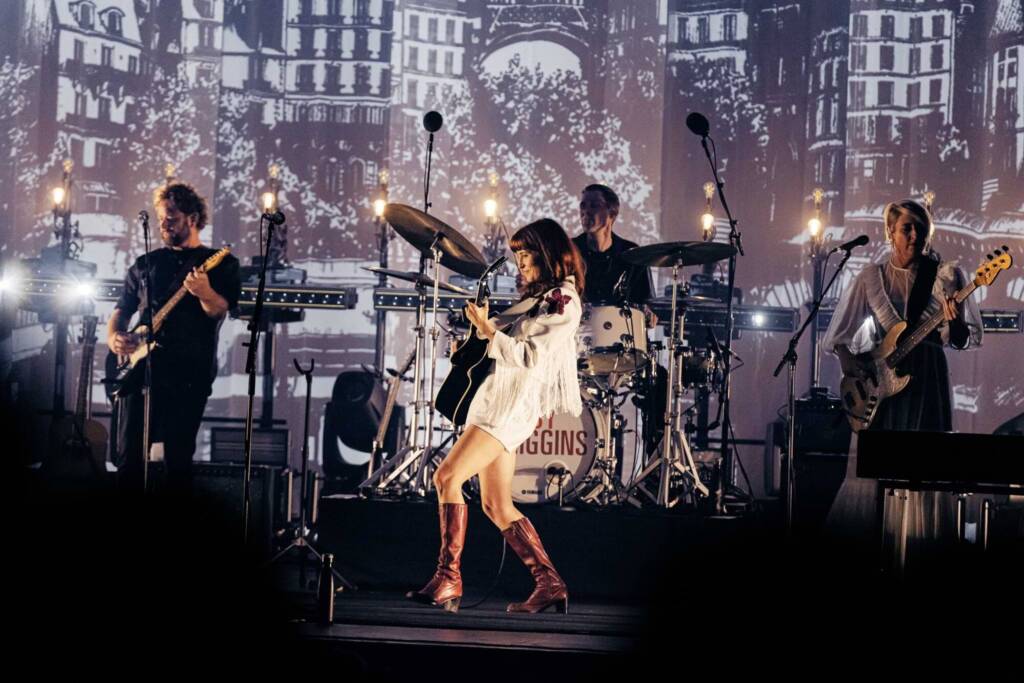 She says this, but there is a level of visible comfort for Higgins this evening. An industry stalwart and fixture within the Australian scene for so long, she looks instantly at home on stage and is incredibly conversational with the audience; often providing meandering commentary, call and response with attendees and preamble for each acoustic track.
She says this, but there is a level of visible comfort for Higgins this evening. An industry stalwart and fixture within the Australian scene for so long, she looks instantly at home on stage and is incredibly conversational with the audience; often providing meandering commentary, call and response with attendees and preamble for each acoustic track.
Standouts from the new record include Story For The Ages, “this was the first song I wrote after my husband and I separated – I didn’t realise what a strong narrative I had written for myself: get married, get a house, have kids. I hadn’t written into the narrative the possibility of that not lasting. Who was I without that story? I kept coming back to the feeling that this wasn’t meant to happen.”
Another equally painful piano ballad is Broken Ones, “about trying to re-enter the dating scene and it not being successful.” There is a comedic self-awareness to Higgins as she addresses a sold out crowd. “Apparently I have a type – and that is broken people,” she chuckles before declaring earnestly – “no, no, it’s a very sad song.”
She jokes that given her particularly emotional discography, her team toyed with the idea of making ‘Missy Higgins Tissues’ for the merch stand (the crowd cheers for this). The joke becomes all too real for me when I find myself full blown sobbing to her new track A Complicated Truth. A song written for her 5 year old daughter Luna, trying to explain divorce. It’s a particularly gutting, honest to a fault way of explaining how love can change and bend to a child: I’ll always love your daddy, because together we made you.
The melodies on Higgins’ new work are familiar and luxurious. It’s easy to forget she comes from a formal jazz piano background when so much of her work is contemporary. Her proficiency on the keys shines on the Palais grand as she continues her one woman set. I’ve seen Higgins live a number of times in various settings but tonight she sounds better than ever. Reducing the production to just her voice and one instrument you get to hear her tone cascade through the theatre, both familiar and matured. We break for interval – she suggests everyone go get “chippies and choc tops,” before returning, quite literally for the second act.
Higgins goes on to perform in full, her debut release. With a full band and custom outfits “I’ve never had a costume before – I’m channelling Taylor,” she says of the gorgeous tailored stagewear made by Ramona favourite Anna Cordell. I may or may not have woo-ed loudly in the theatre at this shout out.
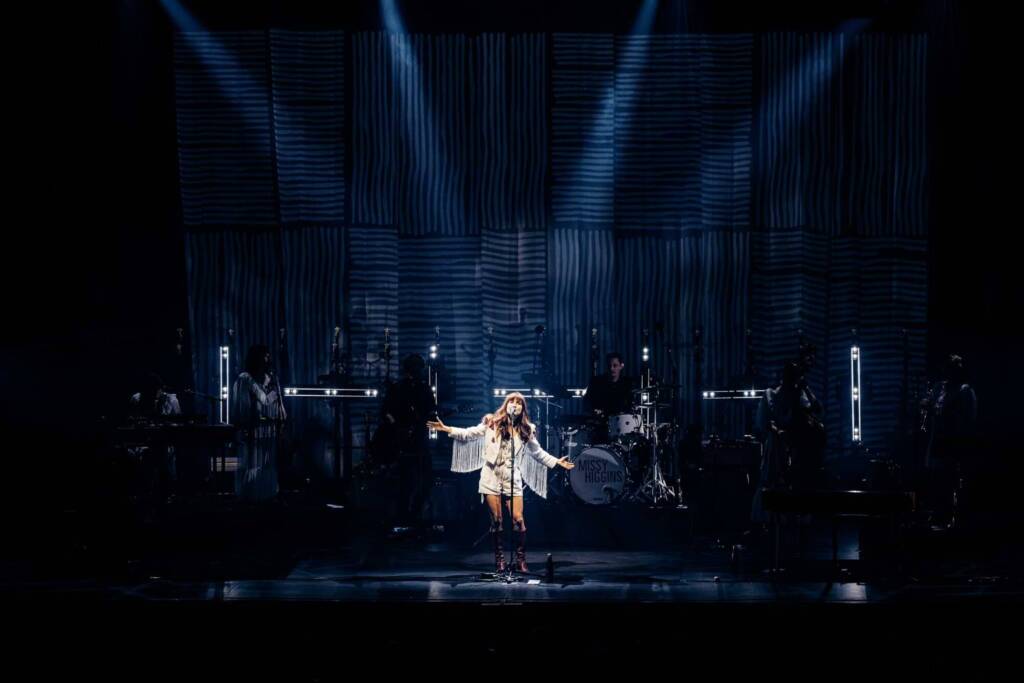 “I don’t think I realised how much of an impact my first album had,” she admits. “I wrote most of these songs aged 16 and 17 in my bedroom. I have a new appreciation for innocence because I wrote them out of pure necessity. It was how I processed my place in the world and because I was honest, people related to it.”
“I don’t think I realised how much of an impact my first album had,” she admits. “I wrote most of these songs aged 16 and 17 in my bedroom. I have a new appreciation for innocence because I wrote them out of pure necessity. It was how I processed my place in the world and because I was honest, people related to it.”
This is ultimately the core success of The Sound of White. Unlike any other album that was released during the early 2000s in Australia, here was a young woman who was so aggressively honest that it was almost uncomfortable. For us down under, she was what Blue by Joni was in the 70s, and what Surfacing by Sarah McLachlan was in the 90s – for decades the pursuit of the female experience packaged ever so minimally has been appealing and Higgins created (somewhat effortlessly) a body of work that will outlive her.
“I love hearing how a song I wrote about a very specific thing 20 years ago has become something else to someone. All these stories are completely separate to me but I love the idea that music is a friend to strangers. So maybe these are your songs now.”
She says this and the auditorium starts clapping which seems to surprise her. She quickly follows, “I love it when people walk down the aisle to a song I wrote about infidelity.”
It’s the kind of show where when the stage lights come down you can see people in the audience smiling. Families, couples and friends – all ages and all enraptured by Higgins’ vocals. I grew up with newspaper cut outs of Missy Higgins and Delta Goodrem on my bedroom walls, pretending to play piano like these young artists I looked up to was such a formative part of my own experience with music that it is particularly special to see children sitting in the auditorium utterly dazzled by the masterclass in songwriting that is The Sound Of White.
This is the enduring legacy of Higgins: what extends beyond her own records and into the cultural treadmill. Her artistry spawned a generation of brilliant Australian female musicians (Odette, Gretta Ray, Angie McMahon, Elliot – I could go on) who often cite Higgins as a crucial part of their origin story.
It is then, a highlight of the show when Higgins surprises the room by welcoming McMahon onto the stage to sing bittersweet fan favourite Where I Stood. “This song got played on Greys Anatomy back in the day – it was a big deal, but the show was coming down off a pinnacle at that stage,” she laughs. My best friend grabs my arm laughing, knowing that I seem to be the only person in the audience who remembers this episode vividly.
 Higgins plays piano and McMahon harmonises, taking the second verse after saying “this is the song I’ve cried to the most of yours.” The blend of their voices is hypnotic and the entire theatre is silent until they finish. It’s special and odd in equal parts to know that we probably wouldn’t have Angie in the same way that we do if not for Higgins’ art. As McMahon leaves the stage it seems Higgins is aware of this – “that was a pretty magic moment wasn’t it.”
Higgins plays piano and McMahon harmonises, taking the second verse after saying “this is the song I’ve cried to the most of yours.” The blend of their voices is hypnotic and the entire theatre is silent until they finish. It’s special and odd in equal parts to know that we probably wouldn’t have Angie in the same way that we do if not for Higgins’ art. As McMahon leaves the stage it seems Higgins is aware of this – “that was a pretty magic moment wasn’t it.”
As she gives her debut record the full band treatment, it is obvious the songs have aged well. Devoid of trend, The Sound Of White holds up in an astonishing way. It somehow avoids feeling overly sentimental nor trite in teenage thought when performed 20 years on. In many ways, the album is just as relevant today as it was in 2004. Cited as a turning point for women in our industry, the record makes abundantly clear why the years guide what the days often cannot hold.
She finishes with the title track, sitting at her piano – it’s the perfect homage to a record that’s legacy is firmly cemented in Australian consciousness. It’s quiet for a beat until everyone stands in applause as the girl from Melbourne comes home to a glittering ovation.
—





